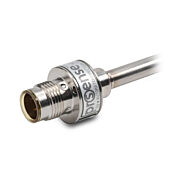Dan_HBT
Member
So I just finished putting the finishing touches on my 15 gal. aluminum electric kettle and I am having trouble settling on a temperature offset for the RTD. I am using the Auber 2352, the 4" pt100 RTD and the 5500W camco ripple element. After 10 min. in crushed ice water (mostly ice) it reads about 33-34 while my cheap Taylor instant read probe thermometer reads 31.4ish. However at 100% output boil with constant stirring I can only get the RTD to hit 206, and at very brief moments hit 207 if I have a sheet tray over the top and a blanket around the sides.
So if it is 2 degrees high at freezing and 5 degrees low at boiling what do I do? I plan to use the kettle as both a HLT and boil kettle. I will collect the runnings from the mash tun (cooler) in 2 buckets and transfer back to the boil kettle after sparging is complete. I will be doing my first all-grain brew in a week or two and would like my mash temps to be dead on. I admit that I should invest in a better thermometer but I am still trying to stomach the price of my new system.
Here are pics of my setup.
https://picasaweb.google.com/116286224592627712791/BeerBrewing
And I would not have though of doing this if it wasn't for the great info on this forum.
So if it is 2 degrees high at freezing and 5 degrees low at boiling what do I do? I plan to use the kettle as both a HLT and boil kettle. I will collect the runnings from the mash tun (cooler) in 2 buckets and transfer back to the boil kettle after sparging is complete. I will be doing my first all-grain brew in a week or two and would like my mash temps to be dead on. I admit that I should invest in a better thermometer but I am still trying to stomach the price of my new system.
Here are pics of my setup.
https://picasaweb.google.com/116286224592627712791/BeerBrewing
And I would not have though of doing this if it wasn't for the great info on this forum.



